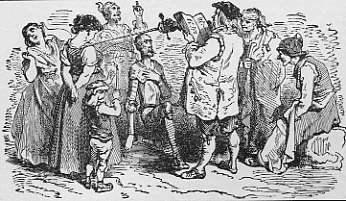In 1492, the Spanish Inquisition forced Jews to convert to Christianity or to leave the Iberian peninsula—on pain of death. Some five centuries later, in June 2015, the Spanish Parliament invited the descendants of those Jewish exiles to apply for Spanish citizenship without having to give up their current passports.
As the Catholic Church continued to establish its primacy at the end of the 15th and beginning of the 16th century, Spain’s Muslims, too, were forced to convert.
Called moriscos, these Muslims made up, by some estimates, approximately 4 percent of the country’s population. But they were not to be there for long.
By 1609, the royal expulsion had been decreed—the moriscos were ordered to leave Spain. And they did, in waves, between 1609 and 1614. To this day, their descendants have been denied the “right of return.”
So why are the descendants of Sephardic Jews allowed to return and the descendants of Muslim converts not?
Might the great Spanish writer Cervantes, whose second volume of Don Quixote was published 400 years ago this year—right after the expulsion of the moriscos—shine any light on this current debate?
Richly Textured Writing
When I teach Don Quixote to my students at Columbia, we can find a dark, deeply satirical, and skeptical Cervantes, but also a more nuanced and multicultural one, capable of tremendous irony. This is not—as is assumed by some—by-the-book Spanish Catholic and traditional orthodoxy.
What we see is a Cervantes of complex humanity. Despite being captured by pirates and imprisoned in Algiers, and, from the little we know, having lived a life of many deep disappointments, we see in his writings that he was still able to sort out good and bad—among Spaniards, Turks, North Africans, English, Catholics, Protestants and moriscos—by their behavior and not by their labels.
Cervantes is most often remembered for Don Quixote, giving the world the term “quixotic” and the phrase “tilting at windmills,” and the endearing and often frustrating characters of Don Quixote and Sancho Panza.

